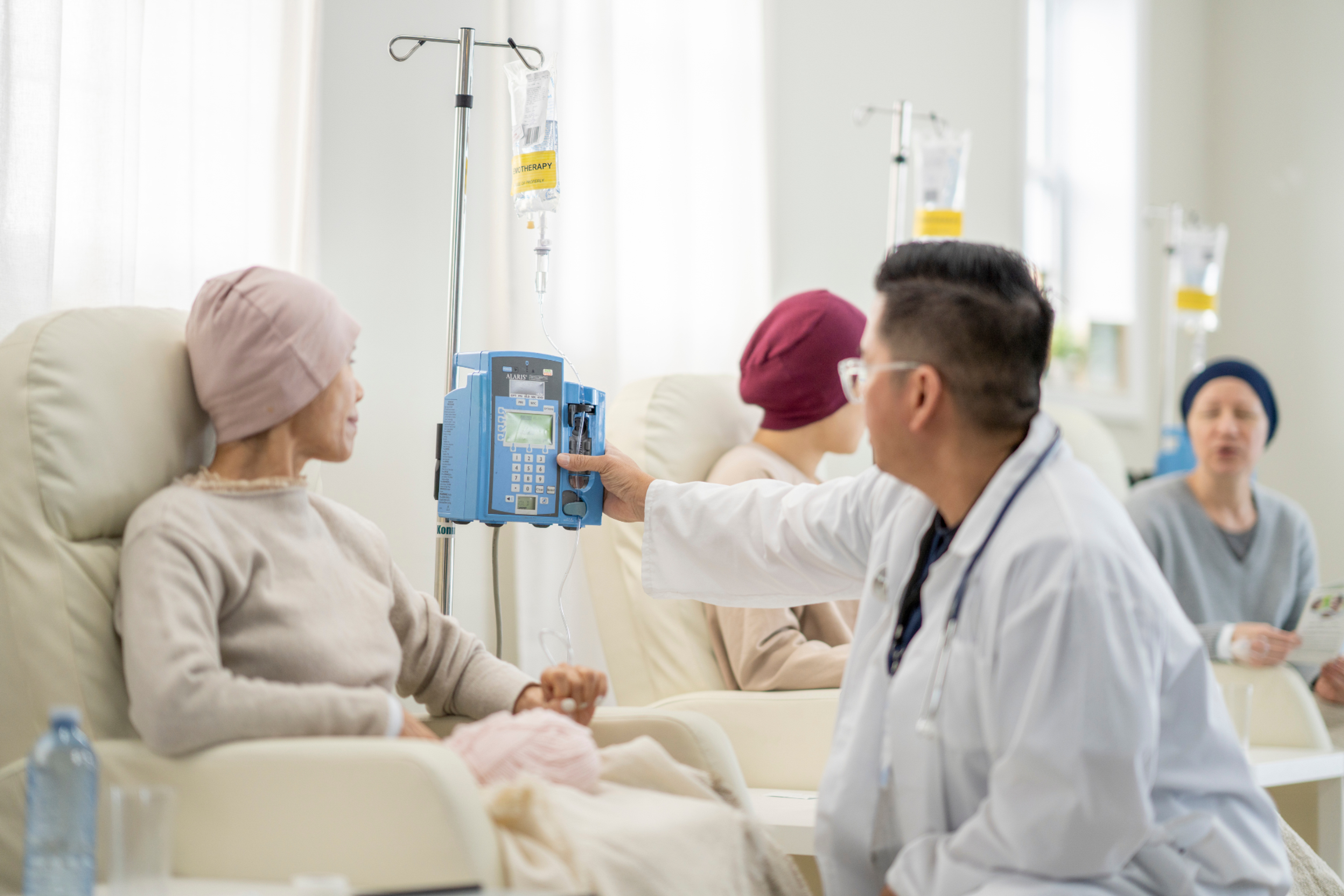The Best Medical Schools for Psychiatry (2025)
Explore the Best Medical Schools for Psychiatry (2025) with rankings, MCAT scores, and program highlights to help you choose the right school for your goals.
Posted June 13, 2025

Join a free event
Learn from top coaches and industry experts in live, interactive sessions you can join for free.
Table of Contents
Psychiatry is one of the most specialized and concept-driven branches of medicine. It focuses on understanding and treating mental disorders, emotional conditions, and behavioral issues. If you’re planning to become a psychiatrist, choosing the right medical school is a key step. This guide outlines the best medical schools for psychiatry in 2025 based on their programs, clinical training, research, and admissions data.
What Psychiatry Involves
Psychiatrists are medical doctors who specialize in mental health. They assess and treat a wide range of psychiatric disorders including depression, anxiety, bipolar disorder, schizophrenia, PTSD, and substance use disorders. Psychiatry blends medical training with advanced study in psychology and behavioral sciences. It also requires strong clinical judgment and long-term engagement with patients, many of whom experience complex or chronic conditions. Their role includes:
- Psychological assessment and diagnosis
- Psychotherapy (talk therapy) using various evidence-based modalities
- Prescribing and managing psychiatric medications such as antidepressants, antipsychotics, and mood stabilizers
- Developing care plans for both acute and chronic conditions
- Coordinating with other healthcare professionals in interdisciplinary settings
Psychiatry Subspecialties
Psychiatrists can further specialize in specific patient populations or areas of mental health care. Common subspecialties include:
- Addiction psychiatry – focuses on substance use disorders and recovery
- Child and adolescent psychiatry – treats mental health conditions in younger patients
- Geriatric psychiatry – cares for aging individuals with late-life psychiatric or cognitive concerns
- Forensic psychiatry – works at the intersection of mental health and the legal system
- Military psychiatry – supports the mental health of active-duty service members
- Emergency psychiatry – provides acute mental health care in crises
- Sleep psychiatry – addresses mental health conditions that affect or stem from sleep problems
- Neuropsychiatry – treats conditions where neurological and psychiatric symptoms overlap
Where Psychiatrists Work
Psychiatrists work in a wide range of healthcare and institutional settings. Each environment offers different patient populations, responsibilities, and opportunities for specialization:
- General hospitals – Collaborate with other physicians to manage mental health concerns in patients with physical illnesses
- Psychiatric hospitals – Provide inpatient care for individuals experiencing acute psychiatric episodes
- Community mental health centers – Serve diverse populations in outpatient settings
- Correctional facilities – Address mental health conditions among incarcerated individuals
- Military and Veterans Affairs – Treat service members and veterans with trauma-related disorders
- Academic medical centers and universities – Combine clinical practice with teaching and psychiatry research
- Private practice – Offer individualized care, often with a psychotherapy focus
- Rehabilitation programs – Help patients recovering from substance use or behavioral issues
Skills and Traits of a Good Psychiatrist
The medical profession requires strong reasoning and interpersonal skills, but psychiatry places additional demands on emotional intelligence, listening, and long-term patient engagement. Psychiatrists must also be comfortable working across disciplines—coordinating care with social workers, psychologists, and other physicians. A good psychiatrist should be:
- Observant – Able to pick up on subtle behavioral cues
- Patient and calm under pressure – Mental health care often involves unpredictable or high-stress scenarios
- A strong communicator – Clear, compassionate communication is essential for diagnosis and treatment
- Ethically grounded and nonjudgmental – Psychiatric patients may disclose highly sensitive information
- Trained in both medicine and psychology – Psychiatry bridges the gap between the physical and mental aspects of health
Education and Certification Timeline
Becoming a board-certified psychiatrist takes 12 years on average. This includes:
1. Undergraduate Education (4 years)
- Complete a bachelor’s degree with strong performance in biology, chemistry, psychology, and other pre-med courses
- Maintain a high GPA to meet med school admissions requirements
2. Medical School (4 years)
- The first two years focus on foundational medical education and preclinical knowledge
- The last two years involve clinical rotations in psychiatry, internal medicine, neurology, and other specialties
- Students often pursue psychiatry electives or research during this time
3. Residency Training (4 years)
- Focused psychiatry residency in a hospital or academic setting
- Includes rotations in child and adolescent psychiatry, addiction psychiatry, geriatric psychiatry, and inpatient and outpatient care
- Emphasis on developing psychiatric diagnostic skills, medication management, and psychotherapy techniques
4. Optional Fellowships (1–2 additional years)
For those who want to specialize in areas such as:
- Addiction psychiatry
- Adolescent psychiatry
- Forensic psychiatry
- Consultation-liaison psychiatry
- Geriatric psychiatry
5. Board Certification
After completing residency, graduates can sit for the board exam offered by the American Board of Psychiatry and Neurology (ABPN)
Top Psychiatry Programs in the U.S. (2025)
| Rank | School | Location | Acceptance Rate |
|---|---|---|---|
| 1 | Harvard Medical School | Boston, MA | 2.4% |
| 2 | Columbia – Vagelos College | New York, NY | 1.9% |
| 3 | Johns Hopkins | Baltimore, MD | 5.6% |
| 4 | UCSF | San Francisco, CA | 1.8% |
| 5 | Yale University | New Haven, CT | 4.8% |
| 6 | Stanford University | Stanford, CA | 1.0% |
1. Harvard Medical School (Boston, MA)
- Applications: 6,856
- Interviews Offered: 757
- Class Size: 165 (135 Pathways, 30 HST)
- Acceptance Rate: 2.4%
- Median GPA: 3.9
- Median MCAT: 520.4
- Female Students: 60%
- Underrepresented in Medicine: 17%
- Average Debt at Graduation: $118,957 (vs. the national average of $186K–$197K)
- Students Receiving Financial Aid: 72%
- Average Annual Scholarship: $60,403
Visit the Harvard Medical School Facts & Figures Class of 2028
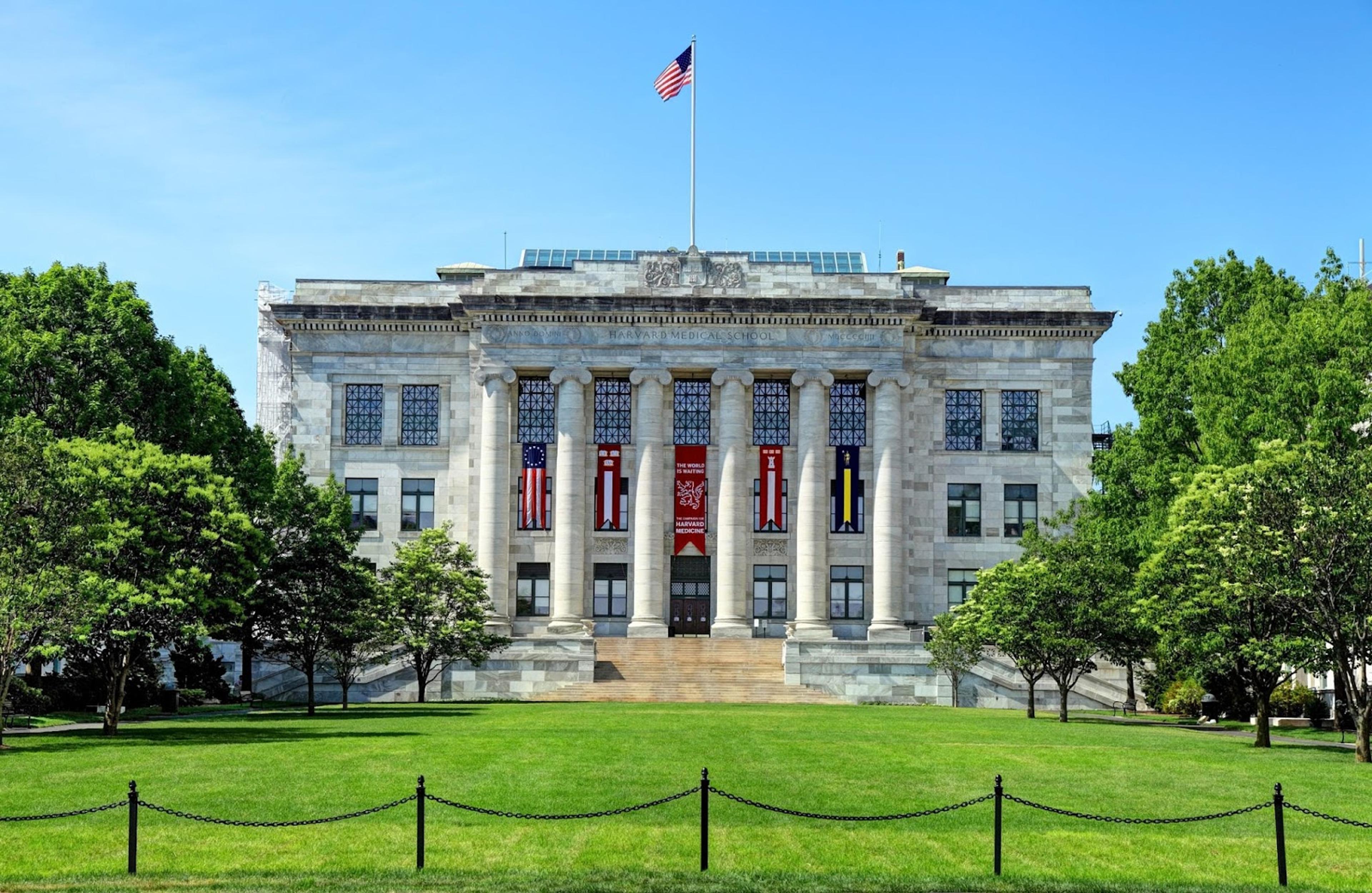
Example Courses & Training Highlights:
- Introduction to the Profession
- Foundations of Medicine
- Integrated Longitudinal Clerkship (includes Psychiatry)
- Social Medicine and Health Equity
- Core Psychiatry Clerkship (typically during year 3)
- Psychopharmacology and Neurobiology electives
- Advanced Subspecialty Psychiatry electives (child, addiction, geriatric, forensics)
Harvard Medical School (HMS) offers one of the nation’s strongest psychiatry programs through its flexible MD tracks—Pathways and Health Sciences & Technology (HST)—which incorporate early clinical experience, advanced electives, and interdisciplinary research. Psychiatry training is embedded across top teaching hospitals such as Massachusetts General, McLean, Beth Israel Deaconess, and Brigham and Women’s, giving students hands-on exposure to inpatient, outpatient, emergency, and consult-liaison psychiatry. Students interested in psychiatry have access to specialized sub-internships, research opportunities, and mentorship through programs like the Donald J. Cohen Fellowship in Child Psychiatry. Harvard’s focus on mental health equity, social medicine, and academic excellence positions graduates to match into competitive psychiatry residencies and become leaders in clinical care and research.

2. Columbia University Vagelos College of Physicians and Surgeons (New York, NY)
- Applications: 7,291
- Interviews Offered: 757
- Class Size: 140
- Acceptance Rate: 1.9%
- GPA Range: 3.39–4.0
- MCAT Range: 508–528
- Female Students: 51%
- Male Students: 49%
- First-Generation College Students: 4%
- Underrepresented in Medicine: Not specified
- NIH Research Funding: $625.4 million
- Most Selected Residencies (2024): Psychiatry (12.2%), Internal Medicine (20%)
- Patient Visits Annually: 1.8 million
- Total Faculty: 2,636 full-time
Visit the VP&S Facts & Statistics – Class of 2028
Example Courses & Training Highlights:
- Foundations of Clinical Medicine
- Psychiatric Medicine Clerkship
- Clinical Gross Anatomy and Radiology
- Doctoring and Patient-Centered Care
- Health Systems Science and Practice
- Psychiatry Sub-Internships (Child, Geriatric, Addiction, Forensic)
- Community-Based Psychiatry Programs at Harlem Hospital and NYSPI
Columbia University’s Vagelos College of Physicians and Surgeons (VP&S) offers one of the most structured and academically rigorous medical school experiences for students pursuing psychiatry. With psychiatry among the most frequently chosen residencies, students receive early exposure to psychiatric conditions through rotations at NewYork-Presbyterian and the New York State Psychiatric Institute, as well as in underserved communities across Harlem and Washington Heights. VP&S integrates mental health training into its MD curriculum through a mix of didactic coursework, clinical clerkships, and electives in neuropsychiatry, social medicine, and behavioral health. The school supports research through $625 million in NIH funding and provides opportunities to work with nationally recognized faculty in psychiatric genetics, neuroscience, and public health. Columbia's long-standing commitment to humanism, clinical excellence, and community engagement makes it a leading choice for students planning to enter the field of psychiatry.
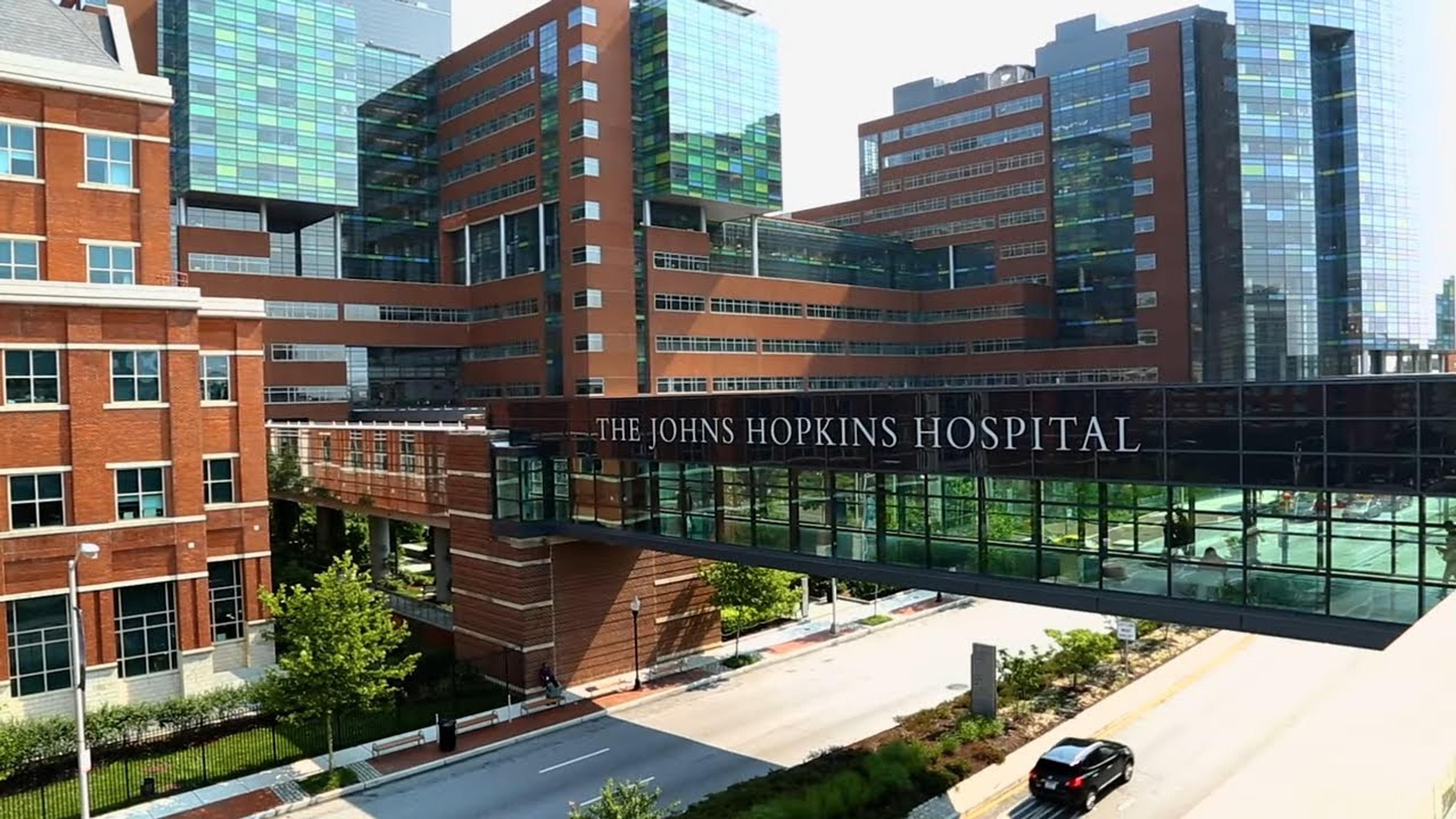
3. Johns Hopkins University School of Medicine (Baltimore, MD)
- Applications: 4,409
- Matriculated Students: 129
- Acceptance Rate: 5.6%
- Median GPA: 3.94
- Median MCAT: 520
- Female Students: 62%
- Male Students: 36%
- Another Gender Identity: 2%
- First-Generation Students: 13%
- Military Background: 2%
- Underrepresented in Medicine: 19%
- States Represented: 29
- Undergraduate Institutions Represented: 62
- Countries Represented: 2
Visit the Johns Hopkins School of Medicine Class Statistics
Example Courses & Training Highlights:
- Scientific Foundations of Medicine
- Genes to Society Curriculum (spanning Year 1 to Year 4)
- Foundations of Clinical Care
- Psychiatry and Behavioral Science Clerkship
- Longitudinal Clerkships in Psychiatry
- Clinical Core in Neurology and Psychiatry
- Research and Discovery Capstone Project
The Johns Hopkins School of Medicine offers one of the most research-intensive and clinically immersive psychiatry education pathways in the U.S., structured through its “Genes to Society” curriculum. Students explore the biological, psychological, and environmental influences on mental health through hands-on rotations in top teaching hospitals including The Johns Hopkins Hospital and Johns Hopkins Bayview Medical Center. Psychiatry is fully integrated throughout the four-year MD program with early exposure to psychiatric assessment, inpatient psychiatry, and consult-liaison services. Students also engage in neuroscience research and behavioral health studies alongside leading faculty in psychiatry, neuropsychiatry, and psychosomatic medicine. The school provides advising through the Colleges Advisory Program and encourages advanced specialization through clinical electives and mentored research. Graduates of Johns Hopkins are well-prepared for top-tier psychiatry residencies and future leadership in clinical psychiatry, translational research, or academic medicine.
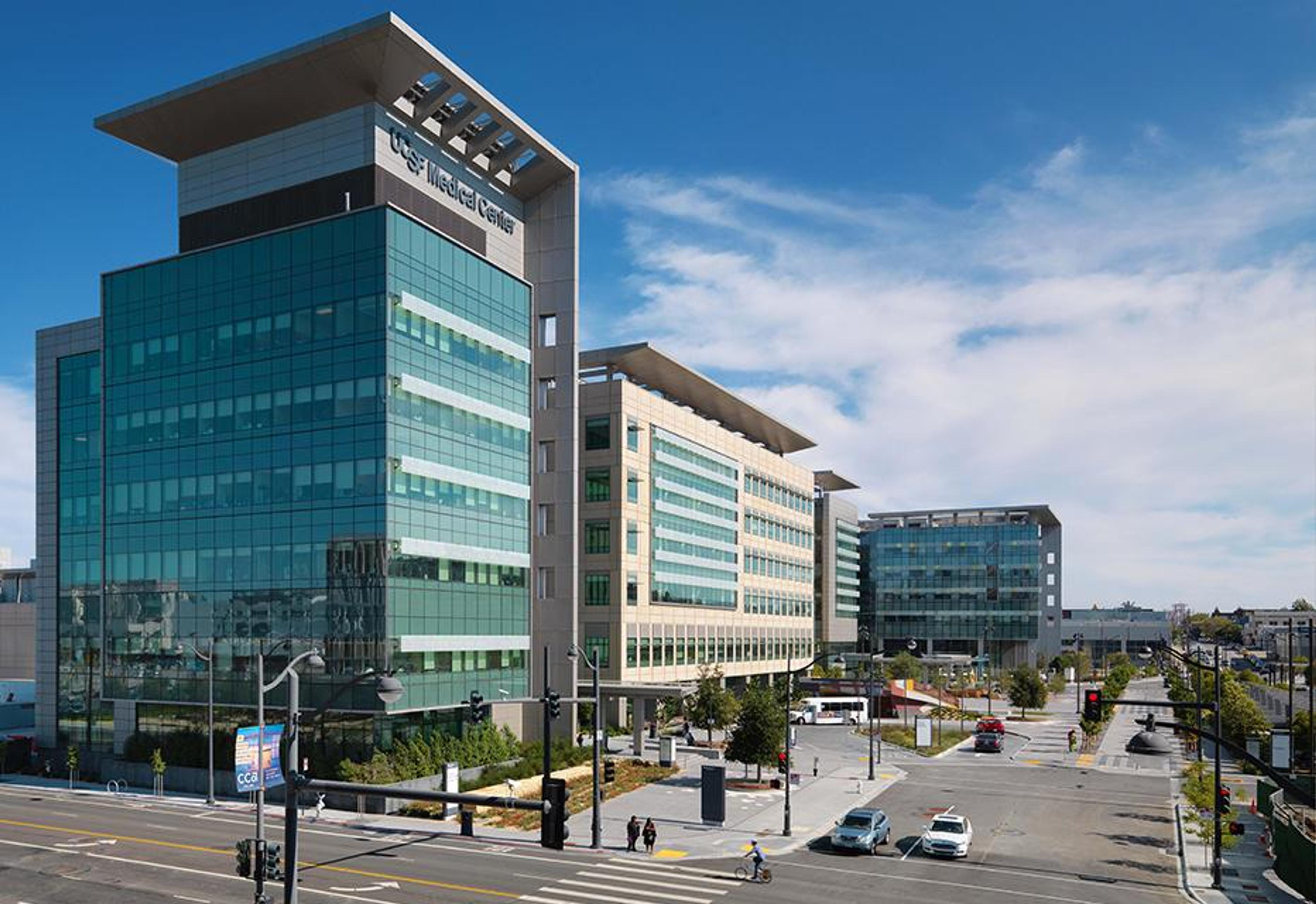
4. University of California, San Francisco (UCSF)
- Applications: 8,774
- Interviews Offered: 525
- Class Size: 161
- Acceptance Rate: 1.8%
- Median GPA: Not reported (range: 3.39–4.0)
- Median MCAT: Estimated ~90th percentile (approx. 515)
- Female Students: 55.3%
- Male Students: 42.8%
- Non-Binary Students: 1.6%
- Underrepresented in Medicine: 46%
- First-Generation College Students: 23%
- California Residents: 86.6%
- Matched into Psychiatry (2024): 13 students (8%)
- Matched into Primary Care: 32%
- Matched at UCSF for Residency: 30%
Visit the UCSF School of Medicine – Admissions & Match Data
Example Courses & Training Highlights:
- Foundations of Patient Care
- Health and the Individual
- Disease Mechanisms & Therapeutics
- Clinical Microsystems Clerkship
- Career Launch Phase (Subinternships & Residency Prep)
- Core Psychiatry Clerkship
- Psychiatry-focused electives across SFGH, UCSF Health, SFVA
UCSF School of Medicine is consistently ranked among the top medical schools in the U.S. for both research and primary care. Its Bridges Curriculum emphasizes early clinical exposure, systems improvement, and continuous reflection, preparing students to integrate scientific knowledge with direct patient care from day one. Psychiatry training at UCSF includes core clerkships and advanced electives across institutions like Zuckerberg San Francisco General Hospital, San Francisco VA Medical Center, and Langley Porter Psychiatric Institute, offering robust experience in community psychiatry, addiction psychiatry, and consultation liaison services. UCSF’s focus on public health, mental health equity, and underserved populations makes it a preferred choice for future psychiatrists committed to improving access and outcomes. Graduates match into highly competitive psychiatry residencies across the country and contribute to major advancements in behavioral health research and community mental health.
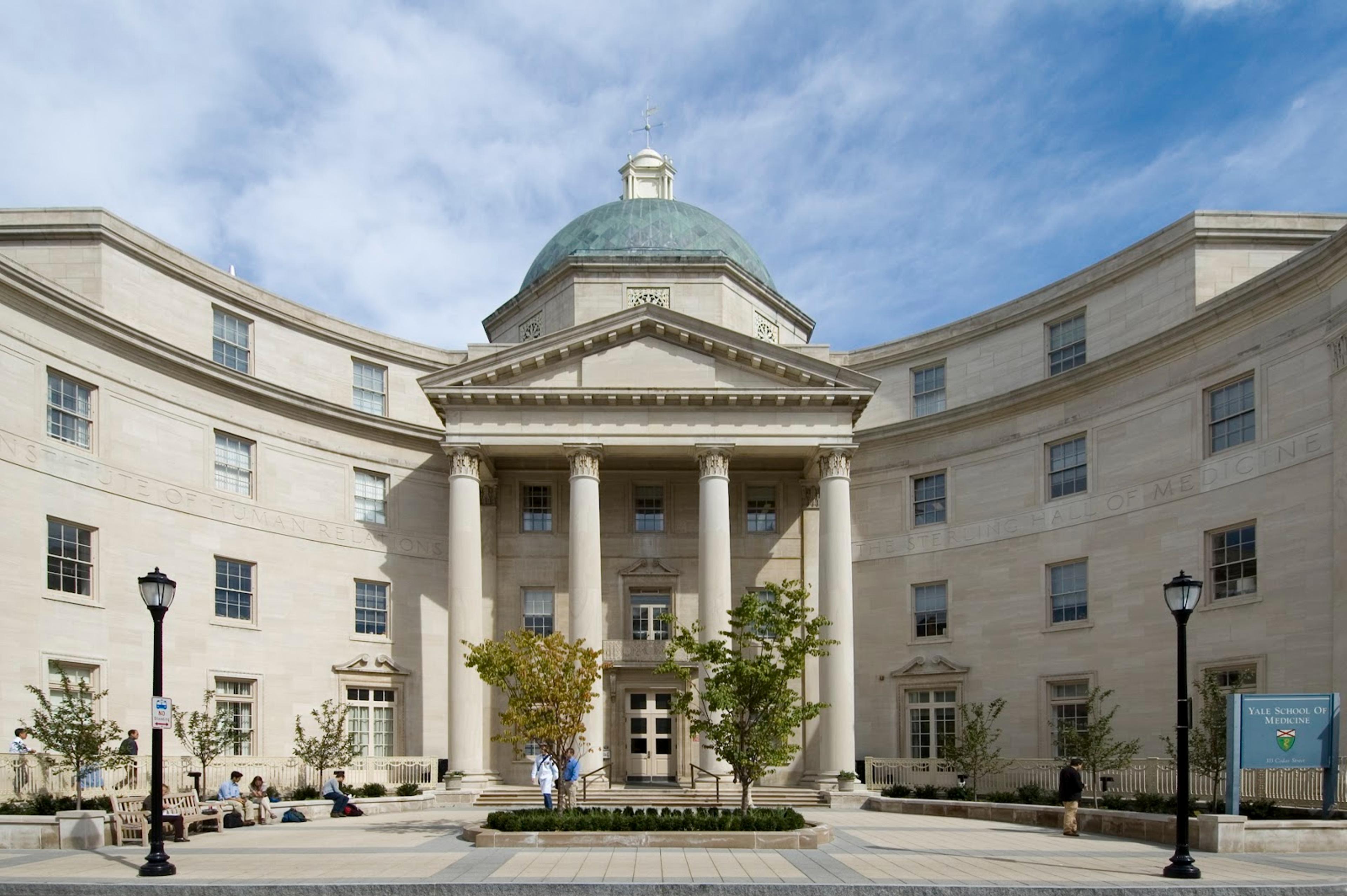
5. Yale School of Medicine (New Haven, CT)
- Applications: Not publicly disclosed
- Class Size: ~104 (MD only)
- Acceptance Rate: 4.8%
- Median GPA: 3.83
- Median MCAT: 521
- Female Students: Not specified
- Underrepresented in Medicine: Not specified
- First-Generation Students: Not specified
- Major Affiliated Hospitals: Yale New Haven Hospital, Connecticut Mental Health Center
- Notable Psychiatry Subspecialties: Addiction Psychiatry, Child and Adolescent Psychiatry, Geriatric Psychiatry, Forensic Psychiatry
- Curriculum Format: Yale System – no grades or class rankings in pre-clerkship years, required thesis project
Visit the Yale School of Medicine Class Profile – Class of 2026
Example Courses & Training Highlights:
- Scientific Foundations of Medicine
- Biopsychosocial Approach to Medicine
- Psychiatry Core Clerkship (Year 3)
- Advanced Subspecialty Psychiatry Electives
- Student Research Thesis (Required for Graduation)
- Optional Fellowship: Donald J. Cohen Child Psychiatry Fellowship
- Yale Longitudinal Clinical Experience (First-Year Clinical Exposure)
Yale School of Medicine stands out for its unique “Yale System” of medical education, which removes grades and class rankings in the preclinical years and encourages independent learning and scholarly research. Psychiatry education at Yale is grounded in both rigorous scientific training and early clinical experience across Yale New Haven Hospital, Connecticut Mental Health Center, and other partner institutions. Students gain direct exposure to a wide range of psychiatric disorders through core clerkships and have the opportunity to pursue advanced electives and fellowships in subspecialties like forensic psychiatry and adolescent psychiatry. Yale also leads in psychiatric research, with ongoing studies in neurobiology, psychopharmacology, psychotherapy, and public mental health. Every MD student is required to complete an original thesis based on independent research, offering additional depth in psychiatric topics for interested students. Yale’s integration of academic freedom, top-tier faculty, and strong clinical networks provides an excellent foundation for future psychiatrists pursuing both practice and research.

6. Stanford University – Stanford University School of Medicine
- Applications: 8,837
- Interviews Offered: 498
- Class Size: 89
- Acceptance Rate: ~1.0%
- Median GPA: 3.89
- Median MCAT: 518 (Range: 511–523)
- Female Students: 50.6%
- Underrepresented in Medicine: 27%
- International Students: 9%
- Average Debt at Graduation: $122,830
- Students Receiving Financial Aid: 85.9%
- Major Affiliated Hospitals: Stanford Health Care, Lucile Packard Children’s Hospital, VA Palo Alto, Santa Clara Valley Medical Center, Kaiser Santa Clara
- Notable Psychiatry Subspecialties: Child and Adolescent Psychiatry, Addiction Psychiatry, Geriatric Psychiatry, Neuropsychiatry
- Curriculum Format: Discovery Curriculum with options for research concentrations, extended study, and MD/PhD paths
Visit the Stanford School of Medicine Facts & Figures
Example Courses & Training Highlights:
- Practice of Medicine (Clinical Skills Training)
- Psychiatry Core Clerkship
- Scholarly Concentration in Neuroscience, Mental Health, and Behavior
- Subspecialty Psychiatry Electives (Addiction, Geriatric, Forensic)
- Physician-Scientist Training Program (PSTP)
- Berg Scholars Program (Physician-Scientist Track)
- Discovery Curriculum Flex Time for Research & Innovation
Stanford Medicine offers one of the most competitive and flexible psychiatry training environments in the country. The Discovery Curriculum allows students to tailor their medical education with time for independent research, dual-degree opportunities, or a physician-scientist pathway. Clinical psychiatry training is spread across diverse, high-volume sites, including Stanford Health Care and Santa Clara Valley Medical Center, ensuring exposure to a broad range of psychiatric disorders and populations. Students can pursue electives and concentrations in neuroscience, behavioral sciences, and psychiatric research, often working alongside NIH-funded investigators and Nobel Laureates. The Psychiatry Core Clerkship, research options, and advanced subspecialty electives give students a strong foundation to match into leading psychiatry residency programs across the country.
Other Medical Schools with Strong Psychiatry Programs
University of Pennsylvania – Perelman School of Medicine
The Perelman School of Medicine offers strong psychiatry training through its modular curriculum, simulation-based learning, and clinical rotations. Students gain exposure to psychiatric care early on and can pursue electives in mental health, participate in psychiatric research, and train at affiliated hospitals in Philadelphia. The school emphasizes clinical skills, behavioral health education, and patient-centered care.
UCLA – David Geffen School of Medicine
UCLA’s David Geffen School of Medicine integrates psychiatry gradually across its four-phase curriculum. Students begin with foundational science and progress to psychiatry-focused clinical experiences at top institutions, including the UCLA Resnick Neuropsychiatric Hospital. The program offers training in addiction psychiatry, adolescent psychiatry, and early patient interaction through clinical immersion.
Duke University – Duke University School of Medicine
Duke’s accelerated three-year preclinical and clinical curriculum allows students to enter psychiatry rotations earlier than most programs. The fourth year is fully dedicated to research or advanced clinical training. Psychiatry education includes rotations at Duke’s affiliated mental health centers and opportunities to focus on areas such as community psychiatry, forensic psychiatry, and neuroscience.
How to Choose a Med School for Psychiatry
When comparing medical schools, look for programs with early exposure to psychiatry, robust residency support, and strong research output. Many schools offer different psychiatry programs, but the best psychiatry programs focus on both academic knowledge and real-world clinical experience.
Key features to look for:
- Clinical training that includes psychiatric hospitals and community-based care
- Opportunities to study psychiatry through electives and clinical rotations
- Advanced study options like fellowships and research tracks
- A strong school of medicine with integrated behavioral sciences
Choosing the right med school can shape the kind of physician you become. If you want access to specialized psychiatric knowledge and broad patient care opportunities, focus on institutions known for their psychiatry education.
How to Get Into the Best Psychiatry Programs
1. Track NIH-Funded Psychiatry Research at Each School
Don’t just rely on school rankings—dig into how much National Institutes of Health (NIH) funding each program receives for psychiatry and mental health research. NIH RePORTER (https://reporter.nih.gov) lets you search by institution and keyword (e.g., “schizophrenia,” “forensic psychiatry,” “child psychiatry”) to see how active the school is in real-world psychiatric research. This is a strong proxy for faculty quality, available lab work, and cutting-edge treatment development.
2. Map Clerkship Locations and Patient Demographics
Some medical schools offer psychiatry rotations only in private institutions or general hospitals with low psychiatric volumes. Instead, look for programs that rotate students through dedicated psychiatric hospitals (like McLean, Connecticut Mental Health Center, or Bellevue) and safety-net systems with diverse psychiatric caseloads. Ask admissions officers for specifics on clerkship sites and population focus.
3. Ask About Subspecialty Shadowing and Early Mentorship
Most schools don’t advertise whether you can shadow a forensic psychiatrist, work with an addiction unit, or participate in an adolescent psychiatry intake team before your third-year clerkship. However some programs allow students to connect with specialty mentors early through student interest groups, departmental events, or observership tracks.
4. Prioritize Programs With Protected Time for Scholarly Work
If you’re planning to match into a top psychiatry residency, research and publications are a major advantage. Look for schools with protected research time built into the curriculum (e.g., Yale’s mandatory thesis, Stanford’s scholarly concentration, UCSF’s inquiry blocks). Some even have grant-funded research pathways specifically for psychiatry.
5. Use Residency Match Lists to Reverse Engineer Your Decision
Before applying, review the school’s psychiatry residency match history—many posts these online, or you can ask admissions directly. Look for a track record of students matching into psychiatry programs you’d be excited to attend (e.g., UCSF, Mass General, Columbia, NYU). Some schools even have in-house residency programs with fast-track or guaranteed interviews for students.
The Bottom Line
If you’re serious about becoming a psychiatrist, choose a medical school that offers more than just prestige—look for programs that combine early and sustained psychiatry exposure, strong clinical affiliations with psychiatric hospitals, subspecialty training, and protected time for research. Top schools like Harvard, UCSF, Columbia, Yale, and Stanford stand out because they integrate behavioral sciences across their curriculum, provide mentorship from leaders in psychiatry, and consistently place graduates into competitive residency programs. But what matters most is finding a school whose clinical sites, research priorities, and support systems align with your long-term goals in mental health care.
Work With a Medical School Coach
Working with a med school career coach can help you target specific programs, refine your essays, and prepare for interviews. Leland offers coaches with experience in admissions to the best psychiatry programs. Browse Med School Coache here.
Related Articles
For more tips on how to engage in the best study prep and maximize your MCAT score, click on these articles:
- How to Know Whether Self-Study or a MCAT Prep Course is Right For You
- Mastering MCAT Biochemistry: Key Concepts and Study Resources
- MCAT vs. USMLE: Understanding the Relationship Between the Exams
- Beyond the Books: Supplementary Resources to Enhance Your MCAT Preparation
- MCAT and Chill: Stress Management Tips for Preparing With Zen
- Preparing for Medical School: A Comprehensive Guide
- How Long Does It Take to Become a Doctor? A Comprehensive Guide
- Medical School Application Timeline: The Ultimate Guide (2025)
FAQs
What medical school should I go to for psychiatry?
- Look for schools with strong psychiatry departments, early clinical exposure, and access to psychiatric hospitals. Harvard, Yale, UCSF, Columbia, and Stanford all offer top-tier psychiatry training with strong residency support and subspecialty options.
What is the best school for psychiatrists?
- Harvard is widely regarded as a leader due to its partnerships with Mass General and McLean. UCSF, Yale, and Columbia also rank high for psychiatry thanks to strong research, diverse patient populations, and advanced clinical training.
Is it better to have an MD or DO for psychiatry?
- Both MDs and DOs can become psychiatrists. MD programs may offer more access to academic psychiatry and research, while DOs bring a holistic approach that works well in general psychiatry. The choice depends on your goals.
What is the MCAT score for psychiatry?
- There’s no fixed score for psychiatry, but top programs usually admit students with MCATs between 515 and 521. A high score helps, but research, GPA, and clinical experience matter just as much.
Browse hundreds of expert coaches
Leland coaches have helped thousands of people achieve their goals. A dedicated mentor can make all the difference.










